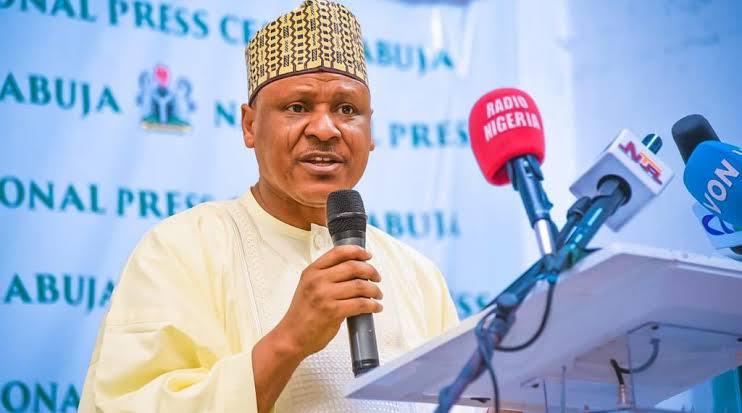Minister of Information and National Orientation, Alhaji Mohammed Idris, has described President Bola Tinubu’s recent suspension of raw shea exports as a bold move to unlock Nigeria’s vast economic potential in the shea industry and establish the country as a global leader in shea production and value-added exports.
The minister made the declaration at the 20th Institute of Chartered Accountants of Nigeria (ICAN) Northern Zonal Accountants’ Conference yesterday, in Minna, Niger State.
Idris, represented by the director-general of the Voice of Nigeria (VoN), Mallam Jibrin Ndace, said the suspension was not just a policy restriction, but a transformational initiative.
“President Bola Ahmed Tinubu’s recent temporary suspension of raw shea exports is not a mere policy experiment but a bold and forward-looking measure aimed at unlocking the full potential of our rural economy,” Idris said.
“By insisting that more of our shea be processed locally, the President is ensuring that Nigeria, which accounts for over 50% of the world’s shea production, does not remain a supplier of raw materials but becomes a global leader in high-value shea products,” he said.
The minister, who hails from Niger State, Nigeria’s shea-producing epicentre, noted that the policy will benefit the state and other producing regions.
He added that it would stimulate local investment, facilitate technology transfer and accelerate processing capacity development, especially in rural areas.
“This decisive step will create quality jobs for our youth and women, boost foreign exchange earnings and deepen Nigeria’s participation in global value chains,” he added.
The minister commended the National Shea Products Association of Nigeria (NASPAN) for supporting the President’s directive and reiterated the federal government’s commitment to creating an enabling environment for implementation.
Idris emphasised that the shea export policy is part of President Tinubu’s broader economic renewal agenda, anchored on accountability, inclusiveness and national re-orientation.
Speaking on the conference theme, “Socio-Economic Potentials, Accountability and National Re-Orientation: Unlocking Nigeria’s Future,” Idris urged Nigerians to embrace the integrity and collective responsibility values.
“Accountability remains the cornerstone of every thriving society. To unlock Nigeria’s future, we must commit to doing things differently – living by the right values, holding institutions accountable and putting Nigeria first in all our actions,” he stated.
Highlighting ongoing reforms under the Renewed Hope Agenda, the Minister listed key projects and initiatives, including: “The Lagos–Calabar Coastal Superhighway, the Sokoto–Badagry Superhighway (1,068 km), with 125 km running through Niger State, Rehabilitation of the Eastern rail corridor, Establishment of Regional Development Commissions, Fiscal discipline and digital transformation.”
Idris said these projects reflect the administration’s commitment to fairness, inclusivity, and national development.
The minister also pointed to improvements in governance systems like the Treasury Single Account (TSA) and the Government Integrated Financial Management Information System (GIFMIS) as tools that have enhanced public financial management.
He noted that Nigeria’s upward movement in the Transparency International Corruption Perceptions Index — from 145th in 2023 to 140th in 2024 — proves the reforms are working.
Idris called on accountants and other professionals to serve as strategic partners in Nigeria’s re-orientation and reform efforts, noting that their expertise is essential in promoting transparency, accountability, and sustainable development.











